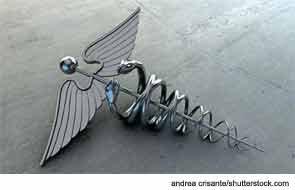A new study suggests that serious participation in athletic activities is the best determiner of a good clinician


A new study suggests that serious participation in athletic activities is the best determiner of a good clinician

How to avoid restrictive employment agreements that prevent moonlighting, volunteering or appearing as an expert witness outside your clinical practice work
For mid-career job seekers, the right questions and answers can make all the difference
The power of a career network depends on the breadth and diversity of the individuals in it

Patients who feel their physicians are empathetic have better medical outcomes, and are more likely to adhere to treatment recommendations for preventive tests, such as mammograms and colonoscopies

A survey from 2010 reports that 21% of physicians in the United States are working part-time, compared with 13% in 2005
Assessing how "good" a doctor is calls into play many different factors that aren’t easily quantifiable

Studies show that distress, burnout, and depression in medical students and residents have contributed to a recent decrease in their empathy for patients
How otolaryngologists can recognize warning signs, mitigate damage and promote their positives when searching for a job